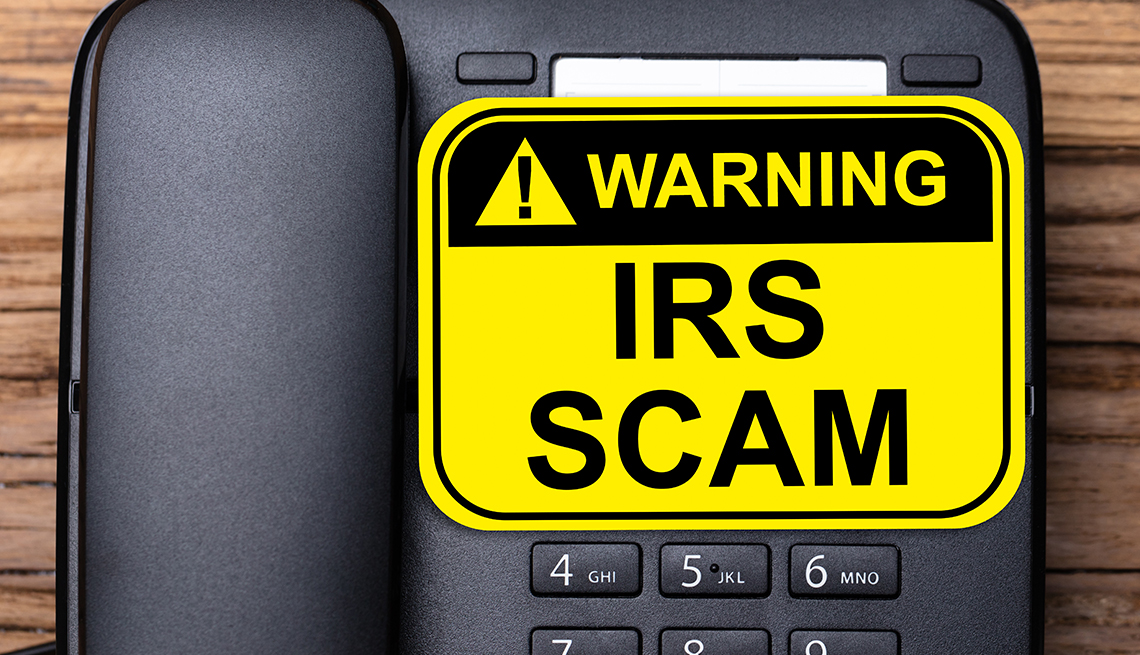
Irs warns taxpayers of top 12 tax scams of 2020
- Select a language for the TTS:
- UK English Female
- UK English Male
- US English Female
- US English Male
- Australian Female
- Australian Male
- Language selected: (auto detect) - EN
Play all audios:

Identity thieves and others also steal stimulus payments. People at nursing homes are at particular jeopardy of having their payments taken from them. Stimulus payments generally belong to
the recipients, not the organizations providing the care. These payments do not count as a resource for determining eligibility for Medicaid and other federal programs. They also do not
count as income in determining eligibility for these programs. Check the Coronavirus Tax Relief page of IRS.gov for assistance with your stimulus payment. 6. SENIOR FRAUD Seniors and those
who care about them need to be on alert for tax scams targeting older Americans, who are becoming more comfortable with evolving technologies, such as social media. Unfortunately, that gives
scammers another means of taking advantage. The likelihood of fraud diminishes when an older person has trusted friends or family members taking an interest in their activities — online and
off — and helping monitor their affairs. 7. SCAMS TARGETING NON-ENGLISH SPEAKERS Phone scams pose a major threat to people with limited access to information, including individuals not
entirely comfortable with the English language. Con artists may have some of your information, including your address, the last four digits of your Social Security number or other personal
details — making the phone calls seem more legitimate. A common ploy used by scammers against nonnative speakers is the IRS impersonation scam, in which a taxpayer receives a telephone call
threatening jail time, deportation or revocation of a driver's license from someone claiming to be with the IRS. Ignore these calls. The IRS won't phone you with threats of this
nature. 8. UNSCRUPULOUS TAX RETURN PREPARERS Beware so-called “ghost” preparers who expose clients to potentially serious filing mistakes as well as possible tax fraud and risk of losing
their refunds. You can spot these ghost preparers because they don't sign the tax returns they prepare. They may instead print the tax return and tell the taxpayer to sign and mail it
to the IRS. For e-filed returns, the ghost preparer will prepare but not digitally sign as the paid preparer. By law, anyone who is paid to prepare or assists in preparing federal tax
returns must have a preparer tax identification number (PTIN). Paid preparers must sign and include their PTIN on returns. Unscrupulous preparers may also target those without a filing
requirement and who may or may not be due a refund. They promise inflated refunds by claiming fake tax credits, including education credits, the earned income tax credit (EITC) and others.
Avoid preparers who ask you to sign a blank return, promise a big refund before looking at your records or charge fees based on a percentage of the refund. You are ultimately responsible for
the accuracy of your tax return, regardless of who prepares it. Taxpayers can go to a special page on IRS.gov for tips on choosing a preparer. 9. 'OFFER IN COMPROMISE’ MILLS Be wary of
misleading tax debt resolution companies that exaggerate chances to settle tax debts for “pennies on the dollar” through an Offer in Compromise (OIC). These offers are available for
taxpayers who meet very specific criteria under law to qualify for reducing their tax bill. But unscrupulous companies oversell the program to unqualified candidates so they can collect a
hefty fee from people already struggling with debt. Although the OIC program helps thousands of people each year reduce their tax debt, not everyone qualifies for an OIC. In fiscal year
2019, 54,000 OICs were submitted to the IRS. The agency accepted 18,000 of them. Use the online OIC Pre-Qualifier tool to see if you qualify.
